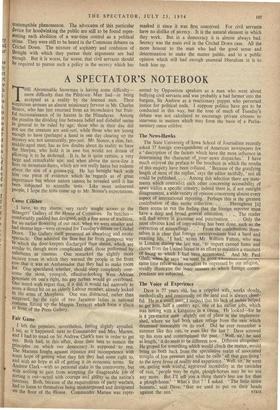The News - Hawks The State University of Iowa School of Journalism
recently asked 37 foreign correspondents of American newspapers for a description of the factors which have the most influence in determining the character of your- news dispatches.' I have much enjoyed the preface to the brochure in which the results of this enquiry have been collated. Because of the gratifying length of most of the replies,' says the editor tactfully, not all could be published. . . . Among this selection there are state- ments which contradict each other concerning accessibility of news within a specific country; indeed there is, if not outright disagreement, a wide variety of opinion concerning almost every aspect of international reporting. Perhaps this is the greatest contribution of this entire collection. . . . Throughout [it] there seems to run the feeling that the foreign reporter must have a deep an broad general education. . . The reader will find errors in grammar and punctuation. . . . Only the most obvious kind of copy-editing has been done, such as the correction of misspellings. . .' From the contributions them- selves it is clear that foreign correspondents lead a hard and exacting life. 'I had,' writes Mr. William Fulton, who was in London during the last war, to import canned hams and cheese from the United States in an effort to maintain a standard of living to which I had been accustomed.' And Mr. Paul Ghali; when he says 'we must be good same time refuse to let ourselves he impressed by our religion, vividly illustrates the inner stresses to which foreign corres- pondents are subjected.


































 Previous page
Previous page